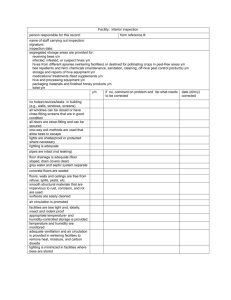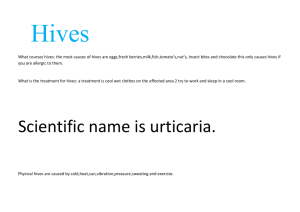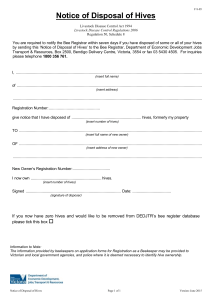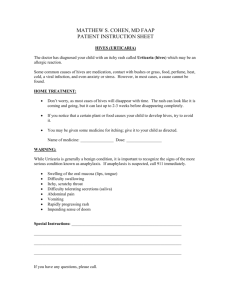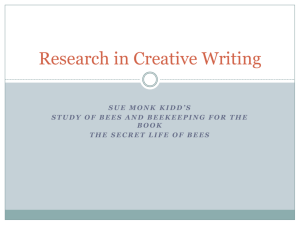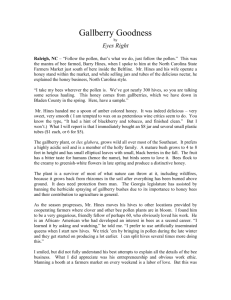Click here for the Final Report for the "Beekeeping Facility for Learning, Research Public Education" project
advertisement
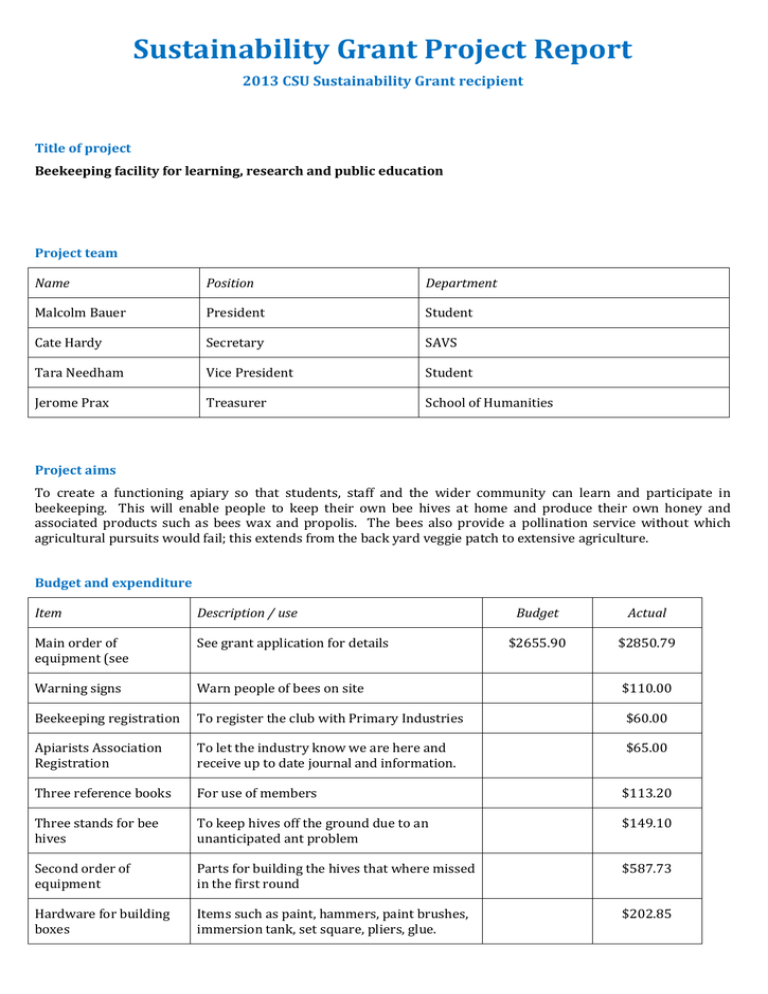
Sustainability Grant Project Report 2013 CSU Sustainability Grant recipient Title of project Beekeeping facility for learning, research and public education Project team Name Position Department Malcolm Bauer President Student Cate Hardy Secretary SAVS Tara Needham Vice President Student Jerome Prax Treasurer School of Humanities Project aims To create a functioning apiary so that students, staff and the wider community can learn and participate in beekeeping. This will enable people to keep their own bee hives at home and produce their own honey and associated products such as bees wax and propolis. The bees also provide a pollination service without which agricultural pursuits would fail; this extends from the back yard veggie patch to extensive agriculture. Budget and expenditure Item Description / use Budget Actual Main order of equipment (see See grant application for details $2655.90 $2850.79 Warning signs Warn people of bees on site $110.00 Beekeeping registration To register the club with Primary Industries $60.00 Apiarists Association Registration To let the industry know we are here and receive up to date journal and information. $65.00 Three reference books For use of members $113.20 Three stands for bee hives To keep hives off the ground due to an unanticipated ant problem $149.10 Second order of equipment Parts for building the hives that where missed in the first round $587.73 Hardware for building boxes Items such as paint, hammers, paint brushes, immersion tank, set square, pliers, glue. $202.85 Item Description / use TOTAL Budget Actual $4138.67 Project timeline Step Description Timing 1 First equipment order processed 16 Sept 2013 2 Started assembling bee hives October 2013 3 Completed assembling of bee hives August 2014 4 Build up bee colonies and catch swarms October 2014 5 Project outcomes This project incorporates the community into working with the student and staff population, the club is open to anyone to join. It is sustainable in that it is more than likely going to produce an income down the track from the sale of bee products such as honey and pollination services to farmers and home gardens. It is environmentally sustainable in that it has no adverse effects on the environment. Amendments to the project We had to reduce the initial plan to three hives and other modifications due to reduced funds being available and allocated. Progress in assembly of the hives was slow and the timing did not co inside with the seasons. Therefore we have not had the chance to catch swarms and build up bee colonies over winter but this is now all set to occur this spring (October). Recommendations Allocate some more funding to increase the number of hives to six and therefore produce more honey to fund the club. Photographs
